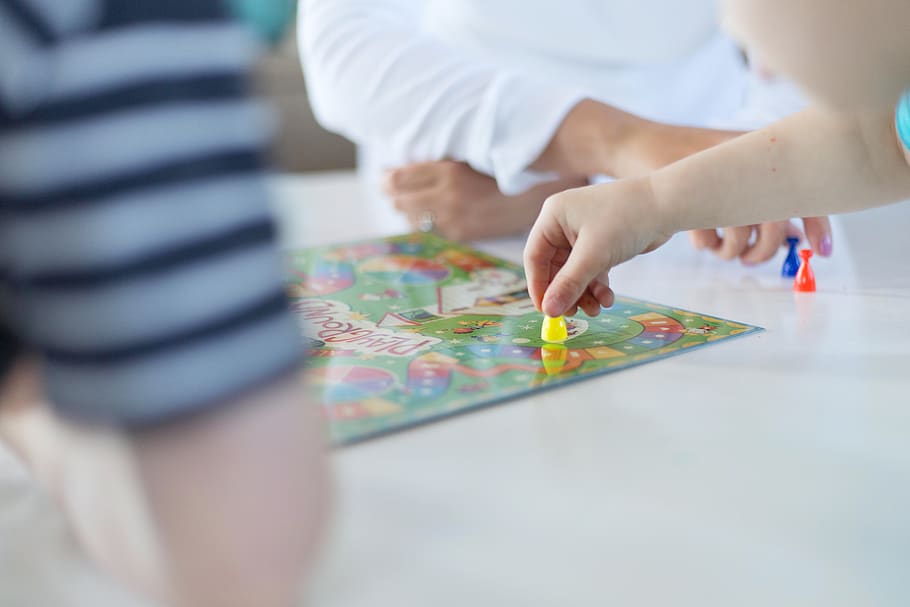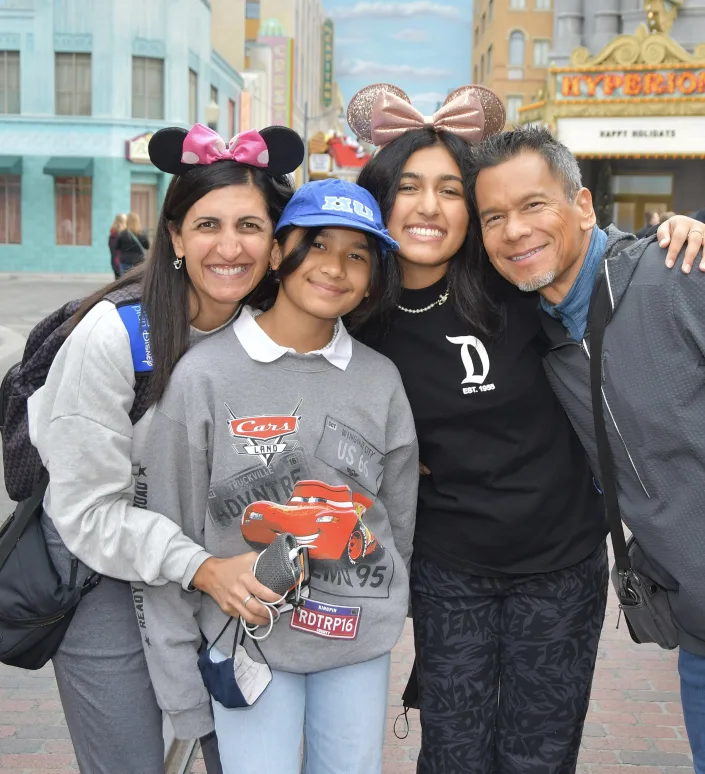
The thought of hearing your lover say “I love you” for the first time sends your body into a frenzy of ecstasy. When you’re passionate about someone, these words often ring out as a rite of passage into deeper intimacy – a relationship milestone. And, once exchanged, you may feel like you’ve been pulled out of the realm of casual intertwining and into the arms of something official, lasting and real.
So, if the idea of falling in love is burning wildly inside you, longing to overflow, but you’re stuck in the space of “Should I say I love you, or should I …… not?” What would you do? Carrie impulsively blurts out an awkward “I love you” when Big gives her a crystal duck-shaped handbag, then he mumbles, “You’re welcome” in response – before fleeing the scene. -before fleeing the scene.
While all great love stories are delicate and should be allowed to unfold organically, we seek expert guidance to help you determine whether the right time to say “I love you” first is now, later …… or never.
The first thing is the first thing: how soon is too soon?
Admittedly, the answer is relatively unsatisfying. Sofia Robirosa, a relationship therapist in Miami, says, “There is no one specific time that can be considered the right time.” “The time it takes to understand whether love feels like true love or infatuation depends a lot on the amount of quality time spent as a couple and the circumstances that might indicate through actions that love is being exercised.” Because of this, the right amount of time is based on the evolution of the individual relationship.
However, there are some indications that it may be too early to say I love you.
Robirosa says it all boils down to not knowing each other well enough.
You don’t know how they treat others and their families. “A big indicator of how a person will treat you in the coming years is to see how they treat their family and close friends, as well as strangers,” she says. If a person is constantly demeaning and conflicted, you can expect the same thing to happen in your romantic relationship.
You’re not digging deep enough. We all need to have fun, but a good indicator of love is taking the time to “do life,” Robirosa says. That means doing the ordinary things – accomplishing responsibilities and goals, going through the hard stuff together and seeing how the other person reacts.
If you’re considering saying “I love you,” get your temperature checked first.
Jenn Mann, psychotherapist, facilitator of VH1 couples therapy with Dr. Jenn and author of The Relationship Fix, suggests that you take the temperature of your relationship before you consider saying “I love you. Specifically, determine if your time together has gone from hot to cold, or if your relationship is more like a slow-burning embers of mutual commitment.
Because in our modern era, there are many things that constantly pull at us and demand our attention – from open relationships to attracting strangers on social media and dating apps. “If someone is willing to spend time alone with you, or at least see you as their primary partner when monogamy isn’t the goal, then that’s a good sign that the relationship will at least move in the direction of love,” Mann says.
But before you burst with passion, she advises you to sit with that feeling and realize what your expectations are for it. “For some people, the expectation is, ‘Oh, I said, you said, this means we’re in a committed relationship immediately.’ For others, the expectation may be completely different – maybe it’s just deepening the friendship.”
Finally, you need to imagine how you would feel if that emotion wasn’t reciprocated. “In many cases, you may be tempted to come clean with the truth about yourself. Maybe you feel you can’t hold on to it any longer, and while you hope it will be returned, if not, you’re willing to accept the situation,” Mann says. “That’s the ideal headspace.”
Ask yourself: Are you sure this is love?
The thrill of a new relationship begins with the initial hook-up, the attraction that makes your head spin, and the pleasure of holding arms with someone who enjoys your favorite activity. Mann says infatuation is usually a mask for projection that looks enticing but isn’t at all. In other words, just because you and your partner are stars in each other’s eyes and share a love of grilled ziti pizza and ’90s rom-coms doesn’t mean you’ve entered into something as complicated and lasting as love.
“Too many people declare their love during the honeymoon phase, which is mostly the first 6 to 18 months of a relationship. The problem is that, in most cases, you may not know what you have yet. At this stage, a lot of people are blinded by excitement,” Mann says. “That’s not necessarily a bad thing, because you should enjoy it, but don’t be too quick to call it what it hasn’t come to be.”
Because love isn’t always cinematic. It’s more like a climb into the dungeon of reality with you – building connection, presence and trust over time. When your partner hears you coughing from the bathroom in the dark hours and stumbles out of bed to bring you a glass of water. Or when you have a sick parent who forgoes sunny vacation plans to stay with you so you don’t have to suffer alone. “Love is more important and more sacrificial than hot sex and the things that turn us on,” Mann says.
Monica Berg, spiritual thought leader, chief communications officer for the Kabbalah Center and author of the forthcoming book “Rethinking Love: Three Steps to Becoming One, Attracting One and Becoming One,” says never say those words before turning around. “It’s important to examine your relationship with yourself before you tell another person that you love them,” she says.
And consider your motives.
Berger recommends being completely honest with yourself – patterns of dysfunction, etc. “You have to make sure your motivation for saying ‘I love you’ is driven by genuine expressions of love and not by despair or loneliness,” she says.
Mann agrees, explaining that we often get into the habit of seeking relationships to meet needs that only we can meet. For example, you may think you’re seeking love when in reality you’re unconsciously seeking emotional support or a happy distraction.
Kevin Gilliland, PsyD, a licensed clinical psychologist who counsels couples, has found that our weaknesses can deceive us. “If you come out of a tough time in your life, you may find someone who brings you a lot of joy and soon the urge to say ‘I love you’ will be there. But a lot of times what you really want to say is, ‘I’m miserable, I’m lonely, and I need to connect with someone who will care about me,'” he says. “While it may feel good now, misguided feelings can create problems later.”
Choosing the right moment.
Robirosa says the right time to say “I love you” is less about the specific time and more about being able to tell if the feeling is one of love or infatuation. “The difference between one and the other is that the former shows that a person fully accepts – flaws and all – and likes their partner.”
Ideally, the first time you say “I love you” should be an intimate moment without any obligation. You may want to reconsider planning to say it in situations where
There is a clear lack of commitment
You feel pressured
There are signs of abuse or unkind treatment
You are under the influence
Be prepared: Your words may not be reciprocated.
Maybe you come from a family that freely tosses around “I love you”-before ending a phone call or during the exchange of goodbye hugs. But your significant other may be more reserved and will only call out these words discreetly – perhaps during a big celebration or when caught up in the end of a death. For some, the words are like a locked away treasure that only comes to light and spreads during important moments. For others, it is exchanged as freely as “passing the salt”.
So if you say it and don’t get a response, Mann suggests taking a deep breath before you panic – because that’s not necessarily a sign of impending doom. “Some people are cautious about expressing their feelings – especially if they’ve experienced a lot of rejection or come from a family that rarely uses those words. So deciding when it’s time to say it is largely about tuning in to the unique expressions and personalities of the individuals you’re involved with,” she says.
Saying “I love you” too early can affect your relationship.
Mann says admitting those words too early can derail a relationship that was already on a progressive track – but not when the investment is already solid.
“Even if a person isn’t ready to say ‘I love you’ after hearing it from their significant other, it’s unlikely to scare them away if they’re really looking ahead with them. However, if someone is on the fence about the relationship, maybe a little emotionally immature or triggered by those words in a negative way, it could scare them off,” Mann said. “But again, that goes back to your partner’s behavior and history.”
Women can certainly talk first.
There’s no denying that generation is a factor to consider when it comes to the way love is expressed, although gender issues aren’t as important in our modern era, Mann says.
While people in their 40s and 50s are more likely to embrace traditional gender stereotypes that suggest men take the lead – wooing their partners with chivalry and being the first to declare their love – that’s not the case with younger generations. “In general, men and women in their 20s and early 30s are more aware of their options and may even be less likely to commit. But, interestingly, research shows that men in the younger generation are able to express their emotions more freely and are more comfortable with them,” Mann said. “So, with that in mind, it’s not terrible for a younger generation of men if his female partner says ‘I love you’ first.”
But what about when you’re in a long-distance relationship?
When most of your interactions are through messaging apps, FaceTime or Skype, it’s not uncommon for your first “I love you” to be digital. Therefore, you don’t have to wait until you’re physically together to say it. But you should be aware of some potential dangers.
Long-distance relationships” may increase your desire for someone. It doesn’t hurt that you don’t see them leaving dirty underwear on the floor,” Mann says. Still, some long-distance relationships can move quickly emotionally because there’s no smokescreen of physical interaction. When sex is forced to wait, more meaningful conversations are invited into the relationship. “I think the bottom line is that if there is a really deep connection, long-distance relationships may develop more quickly than usual because both parties are forced to communicate and get to know each other beyond superficial things,” Mann says.
Ultimately, should we define our romantic relationships in one sentence?
Should we stick to “I love you” as the proverbial relationship “crossover” moment? Is it really a milestone that lives up to the hype? Not literally, but it’s also important to realize that many people will see it that way, so adjust your intentions accordingly. After these words are exchanged, the climate may change – becoming one of expectation.
“As you move from interest to infatuation to love, many people begin to feel some anxiety. They may think they can’t control their emotions for that person anymore. But you need to ask yourself if you’re ready to hold on with the act of love on the other side of saying those words,” says Gilliland.
… Because the real work begins after – not before – the exchange of “I love you.
We often invest incredible amounts of energy and strategy in finding our soul mates. Maybe you’ve been on a series of awkward Tinder dates, or allowed your mom or co-worker to play Cupid in ways that led to disastrous hijinks. Or maybe you’ve found the person you think is the only one you shine with and are working every day to nurture the connection between the two of you.
While it’s absolutely important to stay sober at the beginning of a relationship, Berg says, making a long-term investment in a relationship is when the work really begins – after the shine starts to fade, not before. “It’s important to ask yourself, ‘What level of responsibility am I willing to take for this?’ Because ‘I love you’ is easy to say, but it’s hard to practice over time,” she says. “We live in a society where love is romanticized in movies. But the truth is that the real work – the essence of a love story – begins as soon as the movie ends.”



